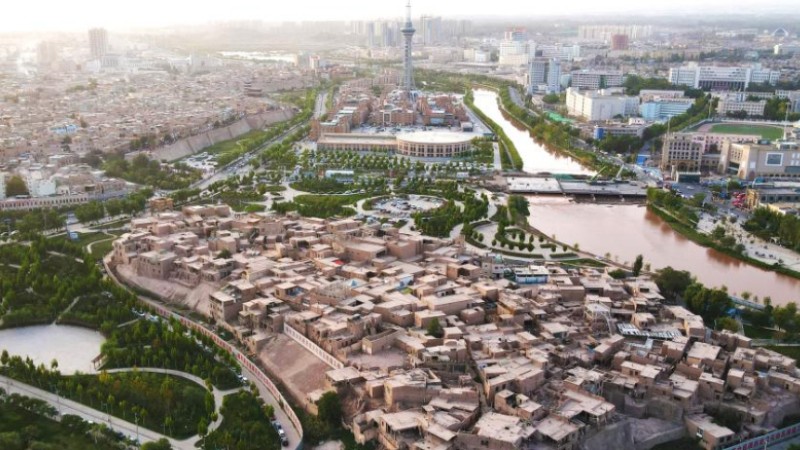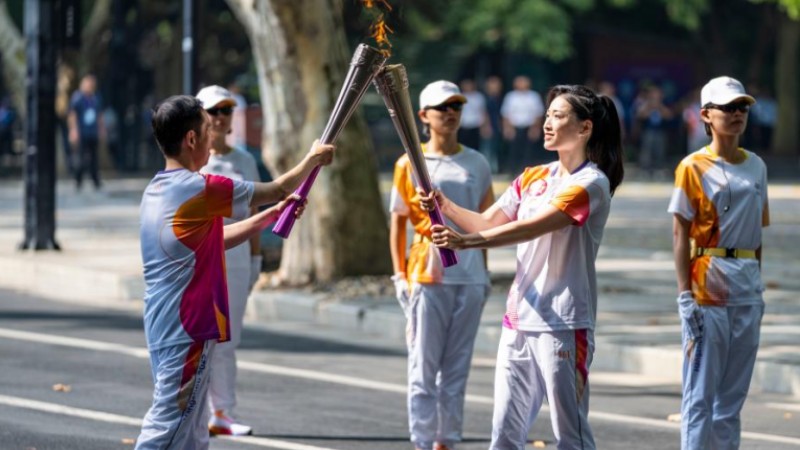Feature: Chinese doctors contribute to Papua New Guinea's medical progress
CHONGQING/SYDNEY, Sept. 12 (Xinhua) -- "We have recently performed many groundbreaking neurosurgery operations, after which the patients are all in good condition," Wang Shiqiang, a Chinese doctor working in Papua New Guinea (PNG), told his colleagues back home.
Wang is a member of the latest Chinese medical aid team sent to the southwest Pacific country. Since 2002, China has dispatched 12 medical aid teams comprising 120 professionals there. These Chinese doctors have played a key role improving the local healthcare system.
The PNG has been grappling with significant healthcare disparities and limited medical resources. With a population of over 9 million, the country has only 0.7 doctors for every 10,000 people, a figure significantly lower than the global average of 22. This situation has placed substantial demands on the Chinese medical team.
Jessica Carmell Pakea, a 28-year-old local resident, has been afflicted with a brain tumor diagnosed three years ago. Due to its considerable size and its proximity to critical language and motor function areas of the brain, the surgery to remove it is extremely complex.
Local medical professionals are unable to perform this operation independently, and all attempts to seek assistance from various domestic hospitals have proven futile. A glimmer of hope finally emerged when a local doctor found that Port Moresby General Hospital has a new Chinese doctor who specializes in brain tumor surgery.
This Chinese doctor was Wang. Upon learning of this, Wang and his colleagues promptly devised a comprehensive surgical plan, opting to use a microscope as an auxiliary tool to ensure the precision of the operation.
"That is a rather complex operation, challenging even for many hospitals in China, let alone in PNG, which has limited medical resources," Wang recounted. "We faced a severe shortage of cotton pads, which are essential in neurosurgery. To ensure the operation's success, we had to recycle the pads once they were fully saturated and clean them with sterile water for injection."
Wang's team, however, managed to overcome all these obstacles. The operation lasted for over four hours, and Pakea's tumor was successfully resected.
In addition to providing healthcare services to the locals, the Chinese medical team also shared their expertise and technologies with local doctors.
"Take it easy, just like you're practicing," said Xian Peng, a urologist from the 12th medical team as he guided a local doctor through a surgical procedure.
"We should not only bring technologies but also make them take root," said Xian. "Hence we seek to train some local doctors who are willing and able to grasp the new technology."
To achieve this goal, the team has developed well-planned courses for PNG doctors. With Xian's guidance, a local urological surgeon independently conducted the first urinary system minimally invasive operation using a laparoscope.
Similarly, Wang would provide training to local doctors before conducting complex surgery.
"During my stay in PNG, my mission is to treat the patients and in the meanwhile share China's micro-manipulation technique in neurosurgery with local doctors," he said. "In this way, the local patients no longer need to go abroad at high costs."
According to the National Health Commission of China, over the past 60 years, China has dispatched a total of 30,000 medical personnel to 76 countries and regions worldwide, offering medical treatment to 290 million patients. China's medical assistance and support have won huge appreciation of the recipient countries.
"It is a great appreciation to the Chinese government for the kindness and great assistance, especially in the medical field," said Dr. James, a urologist at the Port Moresby General Hospital.
"We are basically working under the Chinese experts here to increase our confidence in managing our special cases. So in the future, we hope that this relationship continues because I think we all share the same goal which is to manage and treat patients."
Photos
Related Stories
Copyright © 2023 People's Daily Online. All Rights Reserved.









